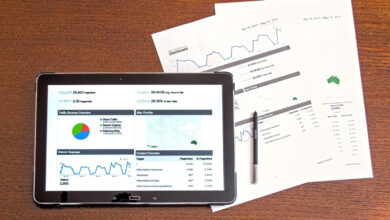National Public Data Breach: Was Your Social Security Number Leaked?

In what is probably the biggest data breach in the history of data breaches, National Public Data was hacked and a massive amount of personal data was taken.
National Public Data is a personal data aggregator – they collect publicly available information about people and sell it to companies doing background checks, criminal checks, and things of that nature. In an ideal world, where this type of treasure trove of data isn’t an enticing target, it’s a good business to be in.
It turns out that in December of 2023, they were hacked and 2.9 billion records were taken. We only know this because that data was put up for sale on the dark web. Well, more accurately, a class action lawsuit was filed once people saw the data out there.
And these records include Social Security Numbers. It also includes full names, dates of birth, your addresses going back thirty years, and likely more.
Table of Contents
How to Check If Your SSN Was Leaked
The simplest way is to go to npd.pentester.com, they’ve collected some information and can check knowing your first and last name, state, and birth year.
My data was leaked, they had all my addresses in Maryland (where I live now) as well as Pennsylvania (where I went to college). Funny enough, they also have an address in Pennsylvania that I didn’t live in but was a case of identity theft about twenty years ago.

Below that red warning was a list of all the Jim Wangs in the leak starting with a bunch of rows specifically for me.
I didn’t “start a comprehensive scan now” but that’s basically the up-sell by Pentester. Nice of them to create a free tool and I get why they did it.
What To Do Next?
I would do everything I list in my do-it-yourself identity theft protection post.
If you aren’t super paranoid (which I am not, I assume my data is out there), you will want to do this at a minimum:
- Freeze all of your credit reports – It’s easy and free and prevents anyone from opening a new line of credit using your name and information. The downside is you need to unfreeze your report before opening lines for yourself.
- Use a classified email address – Anyone buying this data will try to phish you for more, avoid this by hiding your email address.
- Use two-factor authentication everywhere – Also known as 2FA, it’s when a website or app requires you to enter in a code you receive in your email or phone. It just makes your accounts slightly more secure. Also, don’t log into anything important from a computer or app or a network you don’t control.
- Consider scrubbing your personal information from the web – This may have have limited the damage from the National Public Data breach if you did this before December 2023 but now that this is out, you can’t really un-ring that bell. A service like DeleteMe can limit the impact in the future.
I live under the assumption this data is already out there but putting it in a nice box with a bow makes it too easy.
Sadly, it is the world we live in and this is what we need to do to protect ourselves.
Other Posts You May Enjoy:
17 Best Quicken Alternatives in 2024 (Free & Paid)
We tried 17 of the best alternatives to Quicken to see which one would work best for you – it all depends on what you need, what you disliked about Quicken, and your budget.
7 Ways to Reload Your Cash App Card
Cash App is a convenient app that lets you use a Cash App card to make purchases, transfer money, and invest. Before signing up for a service like Cash App, however, it’s important that you know where to reload your Cash App card. Here are 7 easy ways to transfer money into your Cash App account.
12 Best Budgeting Apps for Couples in 2024
It’s no secret that money is a leading source of conflict among couples. By using a budgeting app together with your partner, you can avoid relationship struggles and free up time for other priorities. Here are the best budgeting apps for couples. Learn more.
What To Do When Interest Rates Go Down
We know that interest rates will fall, it’s simply a matter of when. What can you do today to prepare for falling interest rates?

About Jim Wang
Jim Wang is a forty-something father of four who is a frequent contributor to Forbes and Vanguard’s Blog. He has also been fortunate to have appeared in the New York Times, Baltimore Sun, Entrepreneur, and Marketplace Money.
Jim has a B.S. in Computer Science and Economics from Carnegie Mellon University, an M.S. in Information Technology – Software Engineering from Carnegie Mellon University, as well as a Masters in Business Administration from Johns Hopkins University. His approach to personal finance is that of an engineer, breaking down complex subjects into bite-sized easily understood concepts that you can use in your daily life.
One of his favorite tools (here’s my treasure chest of tools, everything I use) is Empower Personal Dashboard, which enables him to manage his finances in just 15-minutes each month. They also offer financial planning, such as a Retirement Planning Tool that can tell you if you’re on track to retire when you want. It’s free.
Opinions expressed here are the author’s alone, not those of any bank or financial institution. This content has not been reviewed, approved or otherwise endorsed by any of these entities.




